A journey through four New England States in search of something.
I was born and raised in western Massachusetts, but twenty-four years later I felt like I still had to go out and discover what New England really meant.
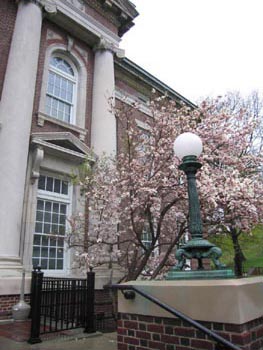
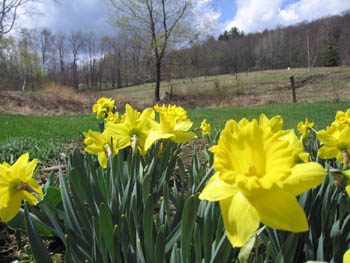
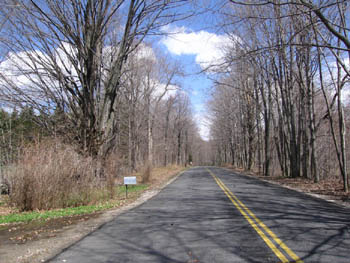
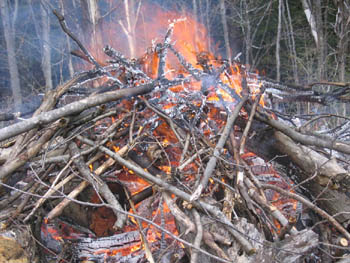
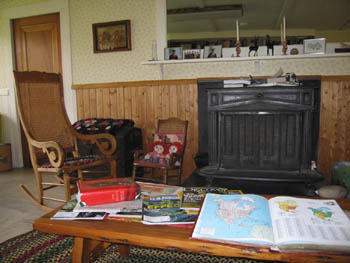
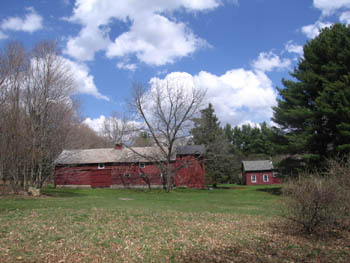
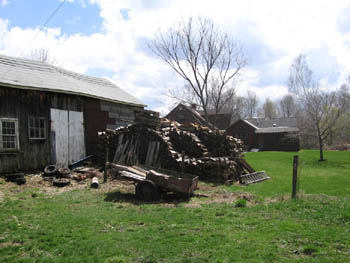
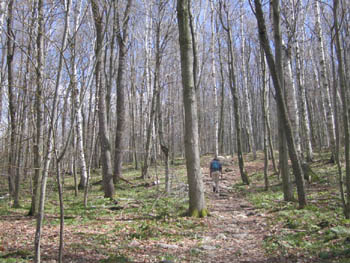
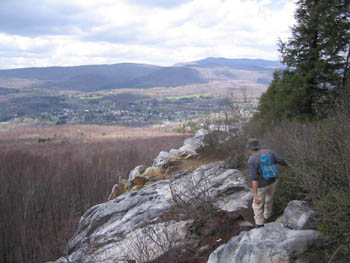
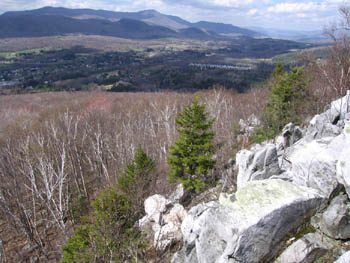
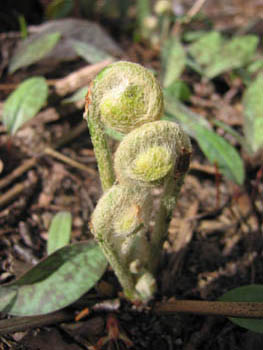
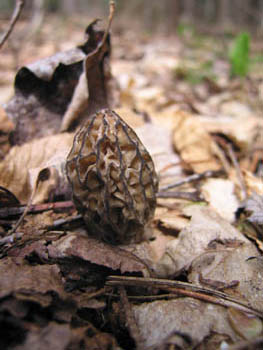
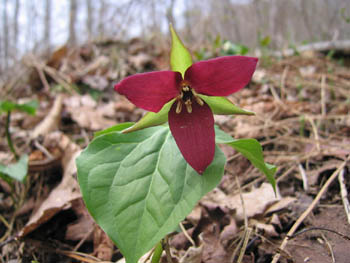
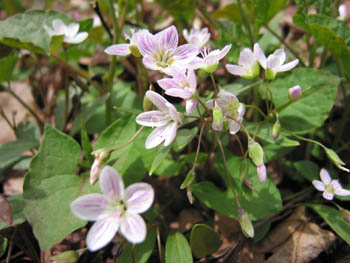
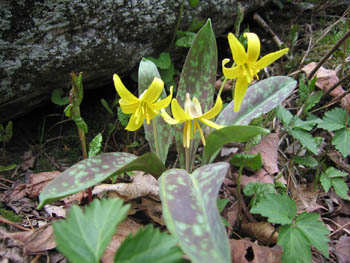
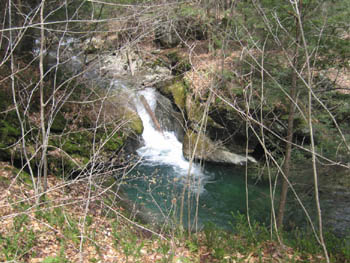
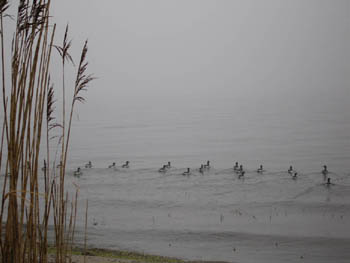
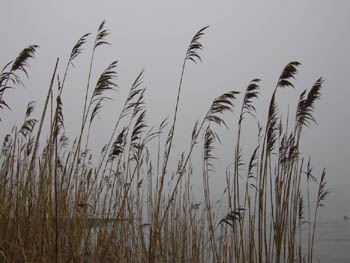
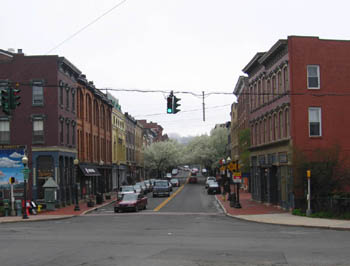
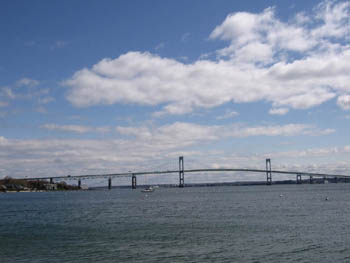
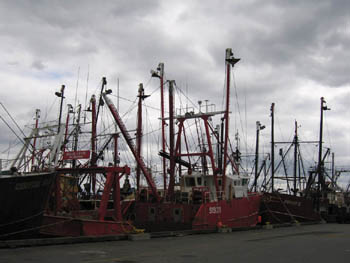
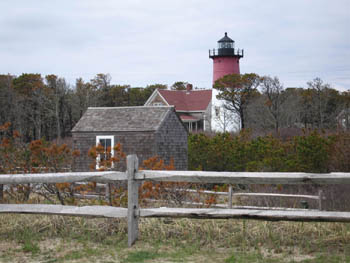
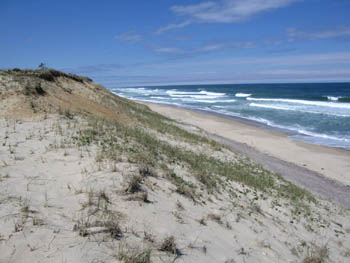
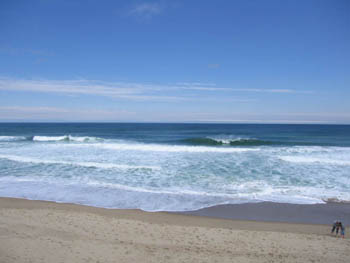
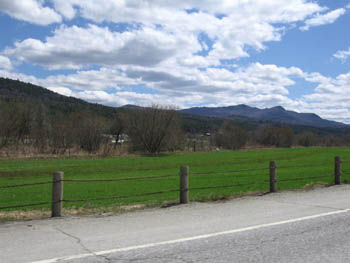
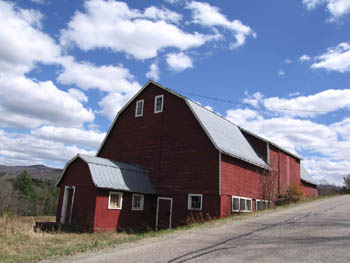
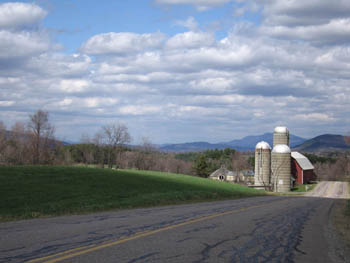
This time I arrived in Albany with a mission. Under gray clouds swollen with rain, I hurried to my rented car and set out on a week-long journey that became, as it progressed, an inexhaustible quest for the essence of three New England states: Connecticut, Rhode Island, and Vermont. Though I lived 22 years in the area, somehow I never departed from familiar places and most of the region remained unknown to me; it seemed that I knew California far better than home. That brings me to the other motivation for my travels: to attempt to identify if any place really could be called home any more. Driving miles of winding country roads, seeking out small town diners and cafes, and taking in every detail I passed, I eventually turned back west with more unsettled items than I'd arrived with.
The city of Troy was more or less unchanged from two years earlier. New coffee shops had sprung up on campus along with sleek new buildings but the greater difference was in me rather than the school: freed from the anxiety of exams and assignments, I took much more notice of the restaurants, the entertainment opportunities, the parks, and the things I would have done had I not been so immersed in coursework. I drove down streets I'd never seen before and discovered great little Sunday afternoon study places that I would never get a chance to walk into. I took Erin out to lunch and affirmed my suspicions that for two years or maybe more we had gone in entirely different directions, never to converge on common points again. The old places and people were gone; I was certain of that when I drove on alone to Massachusetts later in the afternoon.
Back home, time passed at the pace it takes stacked split firewood to soften and sprout mushrooms under intermittent rainstorms year after year. My boots rested just where I'd left them in November, and I finished reading a magazine I'd started on Thanksgiving Thursday. Some projects were under way, as always; the entryway was being remodeled and the oven vented aromas of baking bread and a flat of perky tomato plants reached skyward from the patio. They were all small contented projects, not striving for anything more than a home, a meal, and a plan for the summer, and in that reliable and constant way the weekend progressed. I wrestled an old wooden tool chest out of the barn and stripped off layers of blackened crackled paint, revealing a deep green wash over fine grained pine that might have first sprung from the ground in the 1600s. Some planks were eroded away especially on the top, but the wood was still solid and would clean up nicely with sanding and a thorough oiling. With it I planned to furnish a home for my good chisels, saws, planes, squares, and other fine woodworking tools. A few days later the crate sat at a packing shop ready for its journey west, 90 years after my great grandfather built it.
Spring had awakened the little black flies, the most fearless and maddening pest of the North Woods, but only the first few million had emerged and I managed to stay a pace ahead of the hungry insects as I traipsed around the forest with my camera photographing the spring wildflowers and thinking of all the furniture I could build if cherry, birch, oak, and maple sprouted abundantly from the ground in the southwestern desert. The spring flowers of the forest are the most delicate of plants, only able to grow before the leaves block the sun and strong-armed weeds of summer begin to wrestle with each other in turf wars. They are the first to poke through the fallen leaves, often spearing straight through a stack of withered leaves and standing there as if strangled, trying to shed the wet brown collar with an almost comical resilience in the face of a harmless enemy - if you will, for a moment, seek humor in the lives of small plants.
From an uncommon limestone and marble outcrop overlooking the valley from a southern hilltop, I looked over the miles of trails and streams and wrestled with the thought that knowing every bend of this one valley was, though remarkable, unfortunately a superfluous skill for me now that I'd pushed the bounds of my travels so far away. Knowing where the frost falls first in September is not of so much value when my intent has shifted to sending spacecraft millions of miles to other planets and my interest has wandered to study the lives of people who live in vastly different arrangements and are unaware of the similarities and differences of our two home valleys. Knowing those similarities and differences makes a person belong to neither place and be needed by both.
Wednesday I turned the car south and made my way through light showers to the grandparents' house for a short visit. They were sorting a garage full of collected items spanning decades, parting ways with as much of the clutter as possible. After all, the benefit comes not from having what you need but rather knowing where it can be found and how to get it. One needs tools, not spare parts, to be ready. It seemed that much of southwestern Massachusetts - and northeastern Connecticut too - had a similar mindset to part ways with old things, for there were countless antiques shops along the roads I followed. Flags flying the letters "OPEN" hung limply from garages, signs nailed to wooden posts declared the sale of rusted wares, and everywhere there was a sleepy feeling that the last breaths of a once industrious place were being tagged, sold, and sent away leaving nothing but tumbled stone walls and empty fields that were slowly being consumed by the tireless march of saplings in the hedgerows.
I stopped for a sandwich at a cafe in Canaan where the breads and pastries are baked fresh all day long and a sandwich is still made to taste good, not to be the same as the sandwich before it. A few older locals were also there for a bite to eat, but the morning activity had slowed and the wait staff chatted with the regulars. I took possession of a fine chocolate covered eclair before leaving, stowing it safely in a white paper bag for a snack farther down the road. As it turned out, the eclair did not get very far because it was not long before I needed to check the map to keep my southward course on the rain-drenched rural roads - the ones that showed up on my map as thin gray lines - and once the car was stopped by the roadside, the eclair didn't stand a chance.
The land became progressively rockier. Among the wiry oaks, tumbled rectangular flagstones that lent themselves to neat stone walls covered the hillsides. Since it was farther south and nearer the coast, the trees were closer to bursting into full leaf - a transition that happens all at once within a few days. Delicate green umbrellas unfold, each emerging like a butterfly from its chrysalis and with an equally remarkable expansion from a tiny case to a broad and colorful sun-catcher. My tires hissed over wet asphalt past trees of pink and white blossoms, pastures with horses grazing, and cozy little houses nestled among the hills. Occasionally I would come across strip malls, gas stations, and traffic lights, but a few miles farther on each would fade back into the gentle sea of brown twigs that covers Connecticut from fall until spring. Eventually I abandoned the rural roads and merged onto divided highway, wanting to make faster progress to Norwalk.
Long Island Sound was blanketed by fog so thick that the ducks faded out of sight as they swam away from shore. Only a few people were nearby and it was surprisingly quiet; only the sound of ripples washing ashore was noticeable besides the distant hum of traffic. I drove around town for a while looking for a central area of restaurants and in the process passed street after street of lovely suburban homes with ornamental trees in full blossom and green grass neatly trimmed. In South Norwalk - SoNo, a recently revived block by the drawbridge - I set out to find a pay phone to call Beckett. I'm still not attached to a cell phone, mainly because I don't want to carry one around with me but also because I really don't talk on the phone very much. The first phone I tried had issues with generating the call tones and couldn't connect my number. The second phone was totally dead. The third phone was also not operational. The fourth worked fine except the microphone didn't transmit my half of the conversation. After that, I gave up - having tried all the phones within a few blocks - and just drove back to Beckett's place where I found him home from work already.
We promptly went back into town for drinks and dinner at a bar where happy hour brings two dollar beers. There I met a surprising number of RPI grads and heard stories of who was where and doing what. By the end of the evening I had heard enough to realize that many people from my class had accomplished - at least in my arguably critical eyes - discouragingly little in the past two years. They settled for dull jobs and apartments close to home, going nowhere new and more or less resigning themselves to a life with few goals or aspirations. Not that I consider my job to give me a status; after all, I never really tried very hard to apply for it, but comparing their dedication to and interest in work to my own, I couldn't help but want to part ways and return to a place where like-minded people refuse mediocrity.
Throughout the night, Beanie the cat instinctively went hunting. However, Beanie never goes outside and in her dim-witted sense of purpose, flinging toys around the apartment and racing back and forth and up and down stairs is equivalent to hunting. Every so often a furry object would streak past my pillow. I'm not accustomed to hearing things move around my house while I'm sleeping so at every bump I woke and listened for trouble. Thunder rumbled for a while and raindrops fell softly and intermittently, but eventually things quieted down and then the sun came up.
Beckett went to work and I turned the car east, keeping my face to the sun rather than giving any attention to road signs. Mile after mile of Connecticut maple trees rolled past; occasionally there were views of Long Island across the Sound but as I moved eastward the island became increasingly distant. New Haven was a mess of road construction and traffic. I raced past Groton with only a brief glimpse of the big General Dynamics building, a bright yellow gantry crane, and a deceptively narrow and placid river mouth far below that gave no hint of harboring nuclear submarines. I passed New London without much notice and then left the Interstate, headed for Naragansett Bay. Stone walls loped over the top of low hills and here and there I passed vineyards on the windy hilltops where gray weather came intermittently and obscured the sun. The houses were adorable, little cottages that seemed to belong near the sea though I could not see water anywhere.
East of Kingston, I passed the Station House Restaurant and turned around at the next intersection, intent on finding a late breakfast. There were just a few people inside. The pretty blonde-haired waitress greeted me and said, "Coffee?" "Yes," I said. Coffee sounded very appealing right then. I ordered a stack of blueberry pancakes and looked around the room while hesitantly sipping my drink, hoping with each sip it would have cooled a little but knowing it hadn't. The middle-aged woman behind the counter looked like she must be the mother of my waitress; she was blonde and looked much the same. It's nice to see a family-run place, and a treat to eat at one because the food is always amazing. The pancakes arrived steaming and thick with succulent berries, and then they were gone. I lingered for a while, eyeing the train prints hanging on the wall and listening to the clank of dishes in the kitchen, and then continued on towards the Bay.
Convinced I was still in the heart of rural Rhode Island, I marveled at a beautiful house a few miles farther down the road. Then as I got closer I saw Greek letters over the front entry: it was a fraternity house. The University of Rhode Island Kingston campus seems curiously isolated, though to the east and north the towns are less quaint and the roadways are bigger. I rolled on through, eager to see the Bay, and a short while later arrived in Jamestown. Incorporated in 1678, it was settled about thirty years earlier by the Dutch and English who made arrangements with the native peoples to use the land. A small town of beautiful, expensive-looking homes, it is surrounded by blue water and consequently every third house had a large sailboat on a trailer or propped on blocks in the yard.
Across the bridge, I took a quick look at Newport and decided the sprawling city didn't need much of my time. I drove onward through Fall River and made my way to New Bedford, the leading port of the global whaling industry in the late 1700s through the end of the 1800s. The young city had its part in the Revolutionary War and it was from there that Herman Melville set out on a whaling ship in 1841 and found the story of Moby Dick somewhere upon the waves. During the Civil War, aging New Bedford ships were sunk in Southern harbors to obstruct passage of Confederate supply ships. In the early 1900s the textile mills came, and went. Decades passed, and with whaling finished, fishing in decline, mills long closed, and empty buildings all along the waterfront, it is apparent that New Bedford is past its best days. Tired-looking men driving troubled pickup trucks shuffled around at the docks hammering away at their rusty trawlers and loading goods into the holds for the next trip to sea, a bleak look of resigned hard labor in their eyes. I think of them now when I walk through the seafood aisle at the grocery store and see all the fillets and steaks lying neat and clean on styrofoam. Before you lament the taking of the fish from the sea, remember that someone makes a difficult livelihood bringing it to you.
The sky was gray and the flattened gull in the parking lot smelled rather badly so I turned the car back north and got on the road to Cape Cod. It felt like I'd suddenly gone north a ways; the forest got rougher and there were more pines and oaks. The Cape was flat and barren; seen from the main highway it is devoid of settlement. I pressed on to the seaward beaches, stopping at a marshy overlook to see the distant waves and then parking at the Nausett Light to walk down to the water. There were only a few groups of people on the beach. Green waves thundered in and melted into the coarse tawny sand under my feet. I walked a short way along the cliffs but didn't linger for long; I was on a scouting mission and there was more to see. It was only more of the same - low tangled pine and oak and adorable little Cape Cod cottages covered in silvered shakes. The restaurants were all closed for the season and even if I'd had the time, I would have been hard pressed to find the lobster dinner I had been thinking of.
At Wellfleet I turned back and made full speed for Manchester. It was only 2pm but the roads are slow to central Connecticut and I knew I would need the rest of the afternoon to get there. Rainstorms passed through, sunshine made the young leaves glow emerald green, Providence traffic jammed and packed itself together in an immovable mess, and then finally I was in Manchester. I found Marla in a mill apartment, a place of high ceilings and great wooden beams and two cats with very different personalities. Icarus and Magellan stayed home but we went out to see friends and chat in a coffee shop until late at night. Many things have changed since school, and many of them have sent us in entirely different directions. Mostly I think it as to do with plans for the future; my friends and I have gone different places and adopted different ways of life. I wonder now if I could live in a Northeastern town; it seems so much like what I already know and tired of.
I pondered that thought until falling asleep and in the morning, having resolved to find myself an answer, I filled the car with gas and got on I91 North for a long ride into Vermont. The familiar cities passed by.. Springfield, Holyoke, Greenfield, Brattleboro. All were places Jeremy and I had passed by canoe on our series of summer river runs back in the good old days when the leash was a little looser and we found it easy to leave the truck in a turnout somewhere and drift into unknown waters, hitchhike around dams and eat wild apples and snatch ears of cow corn and build fires on the riverbank and camp on sand bars. At White River Junction, another town of foolish river memories where we ducked under orange buoys and paddled into the hydroelectric plant, I went west on a road not yet traveled to Montpelier.
The White River Valley is one of Vermont's quintessential places. The depressed towns are nestled among small but steep hills that must be spectacular in fall colors; even in brown April the land was pretty. The road wound through narrow valleys and went over a rise, descending to Montpelier. Arriving at noon on a Friday, I found the surprisingly small capital city packed full of people. Some stood in front of the Capital building waving signs protesting the Bush administration and the war in Iraq. I got the impression that many people about were involved in the government offices and courts and other official businesses. There wasn't much more than that in town, actually; the short main street ended abruptly and steep hillsides pressed in against a river.
It was still early in the day, so I set my course for Burlington. The road crested another ridge and then dropped down into flatter land flanked by the conspicuous ice-covered Camel's Hump to the south and Mount Mansfield, still snowy, to the north. Burlington is a sprawling city with colleges and scores of shops, restaurants, and pubs to feed and entertain the students. The day was warm and sunny and it was Friday midday; people were out in optimistically light clothing. Lake Champlain glistened iridescent blue and beyond I could see the Adirondack Mountains. Somehow in all my trips to the Adirondacks I'd never crossed over to the Lake or northwestern Vermont.
I had thought I would stop for lunch in Burlington, but after making a loop through the center of town I suddenly felt very much out of place. I was visiting from far away and had no good reason for being there and hardly any time to stick around. I was a drifter who had no final exams coming up, who knew nothing of the best places to eat or where to park a car, and even if I made my way to a cafe and sat down for lunch I knew that everyone would assume I was a local. It would end up that I would seem flustered, as if I hardly ever left my dorm room or couldn't find my way around my own town. I kept driving, happy to see the hills come closer again as I hurried back into rural Vermont.
I turned south on VT 100 to Waitsfield, on a mission to see the heart of the state and its finest little resort town. Sugarbush and Mad River Glen are beautifully inaccessible and immense; I'd never seen them before but as I rolled into town it was apparent that the region thrived on snow sports. Hotels and Bed & Breakfasts abounded. The general store sold fine wines and cheeses and chocolates and everywhere there were flyers about the resorts and sights and music and theater and food and special events and the holiday season and a whole host of things that one would never imagine could all happen in such a tiny quaint town. At the deli I ordered a hot pastrami sandwich which was absolutely amazing, probably in part due to my hunger though I cannot detract from the quality ingredients and personal care that could only come from a rural general store deli. I drove across the covered bridge and up into the hills to find a turnout where I could eat, then sat in the brisk wind admiring the landscape.
The Mad River, so named because it flows north unlike most streams and rivers in the US, was really no more than a perky stream, clear and cold and hardly large enough to get a kayak in. Instead people wearing colorful wind shells rode bicycles or jogged. One restaurant had hooks above the front porch; four or five bicycles hung by their front wheels while the riders dined inside. It was nice to see so trusting and simple a lifestyle. The busy season was over but there was a surprising amount of traffic coming through town. I browsed through some shops and tried to understand which part of the town was real and which part was a front put up to please the winter tourists; the wine and cheese in the general store, the craft shops and restaurants - they were all for visitors but on the other hand it seemed like the residents were sporty, active people who had appreciation for knowledge and hard work. I wonder if I could live there.
The road south was impossibly narrow and winding, considering how much traffic must come through at peak season. Icy remains of snowdrifts huddled on the north sides of bends in the river which had disappeared into the hills and then emerged again - a different stream, actually - flowing in the opposite direction. The valleys were narrow and the hills low, making the landscape feel almost miniature. Pasture and farm fields occupied the entire valley floor, which was more or less flat, forcing the road to skirt around the edge against the trees. Red barns and white farmhouses sat neatly in the middle of the fields. Out west the freeways cut straight through everything; hilltops have been relocated and gullies filled so the road can pass through. In contrast, Vermont 100 hadn't even the strength to push through a dairy pasture. Somehow, that felt reassuring.
Rutland was a large sprawling town. The amenities serving the nearby Killington ski slopes were plainer and more urban feeling than those in Waitsfield. Hoping to be home for dinner, I hurried on down into increasingly larger valleys. The hills became big, rounded, and brown with no evergreens and the roads turned to divided highway. I rounded a bend outside Bennington and saw the 300 foot tall stone obelisk that stands there as a monument to the Battle of Bennington, which was fought nearby in 1777. The sun was low and trees just coming into leaf shimmered in pastel colors; I was struck by the tranquility of the scene. It really did feel as if I was coming down from the hills and too-cute-to-be-real ski towns into big familiar valleys centered on old brick mills and blue collar homes. It felt good to be back in a familiar place, but I was also keenly aware that I'd just seen a significant part of New England and not found a single place that really fit me well. I conclude that I don't belong in a place where one puts down roots to the land, not yet. There's too much else to see.
Two days later I boarded a plane going west via Charlotte. There in the airport, dozens of Southern front porch rocking chairs - each painted white and lined up neatly in the food court - were arranged for travelers to stop and rest. I liked the variation from hard benches. The flight to Los Angeles was itself uneventful but I ended up in the company of yet another person who would shake up my thoughts and leave them unsettled for days. I still have no sense made of things, so I'll leave that story alone and simply say that one can learn everything there is to know about the workings of the mind and still be mystified by how much variation there is in what we usually assume is a common ability to think and be reasonable.
That was Finding New England, a tale of what lives and lies along 1300 miles of New England roadways. April 2005. ~Mike